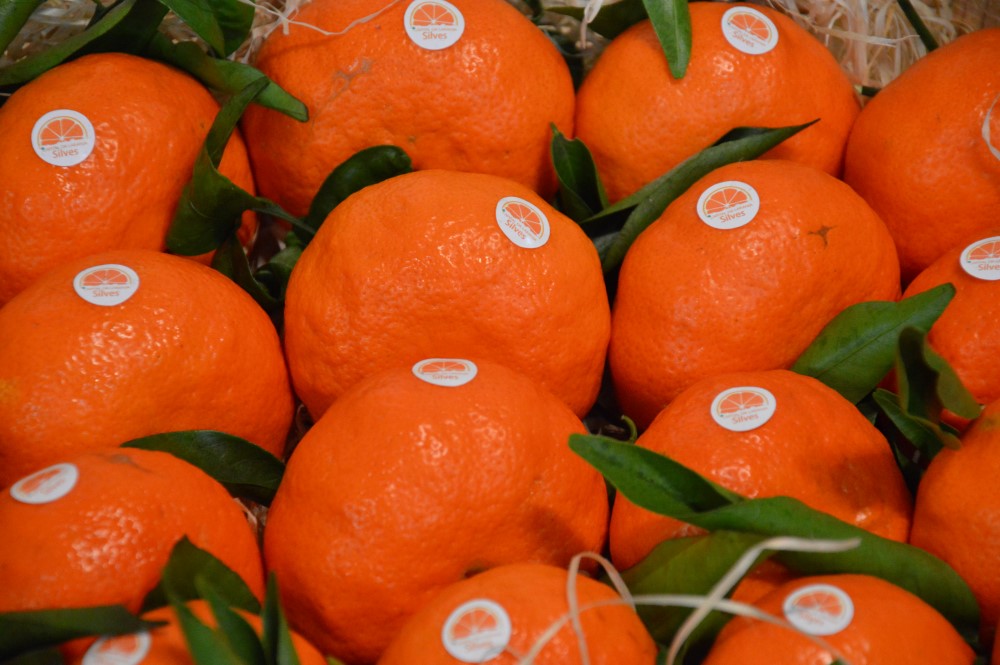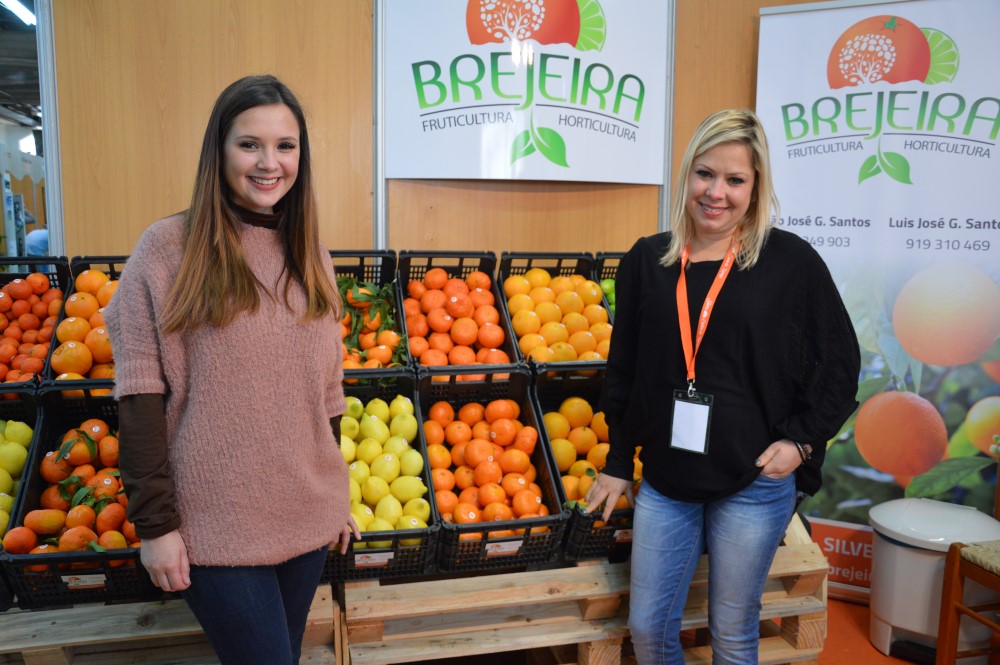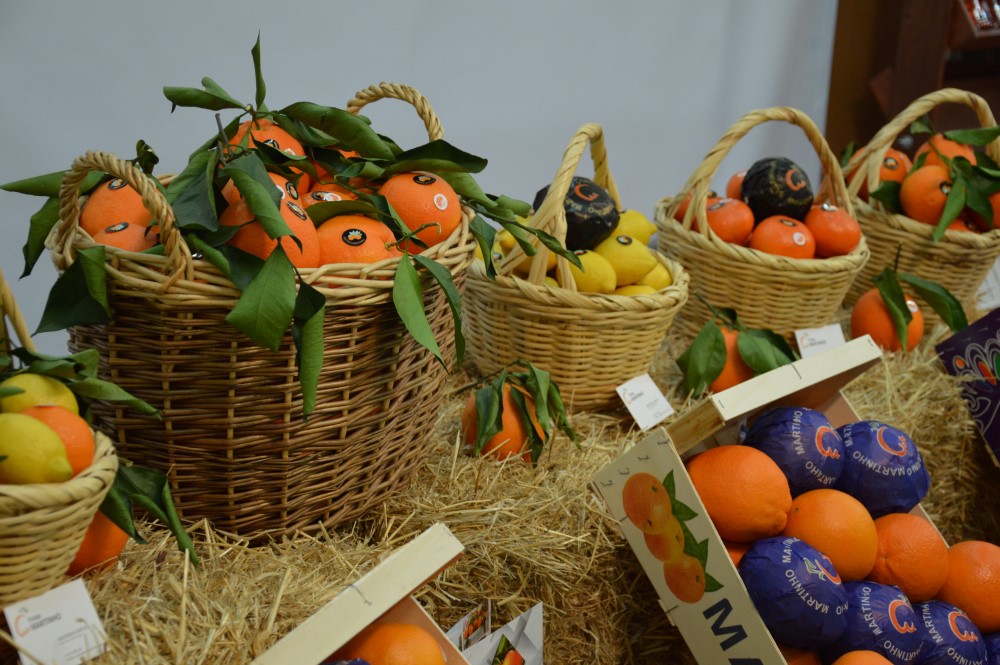 There are 17 hectares of citrus fruit planted and in production in the Algarve, 6 more than nine years ago. The data was revealed to the Sul Informação by Fernando Severino, regional director of Agriculture and Fisheries of the Algarve, who highlights the «great interest» that the citrus industry continues to have in the region.
There are 17 hectares of citrus fruit planted and in production in the Algarve, 6 more than nine years ago. The data was revealed to the Sul Informação by Fernando Severino, regional director of Agriculture and Fisheries of the Algarve, who highlights the «great interest» that the citrus industry continues to have in the region.
But these citrus fruits are no longer just oranges and tangerines that began to be planted in force in the 50s, when the Arade Dam was built in Silves. Now there is a bet on new varieties, to the taste of the most refined consumer. "There has also been a certain demand for lemon, with new areas to be planted," added Fernando Severino.
With an annual production of «250 to 300 thousand tons» and concentrating «70% of the national citrus fruit», the Algarve continues to be the true capital of oranges in Portugal. But, at regional level, who claimed and registered this title was Silves, who has an estimated annual production of «5500 to 6000 hectares of citrus fruit», being, therefore, «one of the two main producing councils in the Algarve, along with Tavira» .
Precisely to celebrate your capitality, Silves organizes, from Friday, the 16th, until Sunday, the 18th, the 2th Mostra Silves Capital of Orange.
This year, the main novelty will be the presentation of the «Rota da Laranja», scheduled for Friday, at 10:30 am. The City Council, which promotes the event, intends this route to be «an important and structural tourist product, resistant to the typical seasonality of tourist demand that the region knows, making known and contributing to the promotion of an identity and excellence product of the region. county'.
Basically, it will be a route through various producers of citrus or citrus-based products (sweets, liqueurs, beer, gastronomy), which will allow visitors to discover the landscape and the richness of this product. There will be different routes depending on the means of transport of visitors (on foot, by bicycle, by car), which will take them to discover not only the different aspects of oranges – from the tree to the table -, but also to discover the various corners of the county of Silves.
But the Exhibit itself will have the presence of dozens of exhibitors linked to citrus, wines, agriculture, regional products, sweets, crafts and gastronomy, as well as some associations and local and regional entities.
The highlight in another edition of this exhibition that promotes the brand Silves Capital da Laranja goes to the holding of a cycle of conferences, in which national and international specialists will debate central themes for the production and producers of citrus fruits.
Cocktails will also return, with the “Barmen Festival Silves Capital da Laranja”. Besides bartenders The festival will give young students from the professional course of the Silves-Sul Schools Group the opportunity to show how much they have learned.
As for the show poster, it is strong and almost exclusively done for women: performances by Raquel Tavares (16), Amor Electro (17) and “Moçoilas” (18) are planned.
Rosa Palma, mayor of Silves, told the Sul Informação that the Mostra is intended to «Promote a product of ours, associating it with Silves». The fact is that, underlined the mayor, «many people only associate the Algarve with the beach and the sun, but we are also orange or wine producers». And it is necessary to strengthen the promotion of these aspects.
Therefore, it will be three days to celebrate a sector that remains strong in the Algarve region.
Although investments in other crops, such as soft fruits and avocados, seem to be more fashionable in the Algarve, the truth is that citrus growing continues to be a strong sector that attracts investors. The regional director for Agriculture reveals that «the turnover generated by citrus fruits in the Algarve is estimated at 70 to 80 million euros per year», keeping the sector very attractive.
"In recent years, there has been an uprooting of old orchards, to plant new ones, with larger areas and with new techniques, which allows for an increase in production," he explained.
One of the reasons for this renewed interest in a traditional sector is above all, according to Fernando Severino, the greater current ease of transporting the Algarve orange, which is already a recognized brand, not only in the rest of the country, but also in the markets where it is increasingly used. exported.
“There is more flow, more exports, more commercial organization. It is still not as much as we would like at the level of producer organizations, but it already exists and is well structured more at the level of private companies. At the moment, there is a certain concentration of production and more organization for export», said the official.
Fernando Severino added that there are private producers already with very large areas that export 80 to 90% of their production, guaranteeing good prices. «There is still a lot of interest in citrus production in the Algarve. And this despite an orchard taking five, six years to start producing and more than that to reach full production».
Also the mayor of Silvez Rosa Palma highlights the investment that has been made, in recent years, in citrus production in her municipality. «Today it can be said that, due to the new varieties, citrus fruit is produced throughout the year. It is an important sector in the economy and also with regard to employment». On the other hand, he reinforces, «a large part of the citrus fruits produced here are for export».
The mayor only regrets that there is "no more support, better thought out", to encourage young farmers to invest in the sector. «It is an investment that only pays off after ten years and there is nothing to support those who invest in this critical period».
In addition to fresh fruit, citrus fruit has also, for years, had an orange juice factory in the Algarve, Lara, located in Silves. Initially launched by a local businessman, who never managed to bring the project to fruition, then bought by the Spaniards, Lara was acquired half a dozen years ago by a Brazilian group, one of the largest orange juice producers in the world.
But not all the orange processed there is from the Algarve. “Lara uses Algarve fruit, but they often complain about not being able to meet their needs. If the business year is good and the fruit is of good quality, there is more flow, namely for export, and there is less fruit to go to the industry and they will have to resort to importing from other markets», namely Morocco, explained the regional director of Agriculture.
Click here for the full program of this 2nd Silves Capital da Orange show.




















Comments